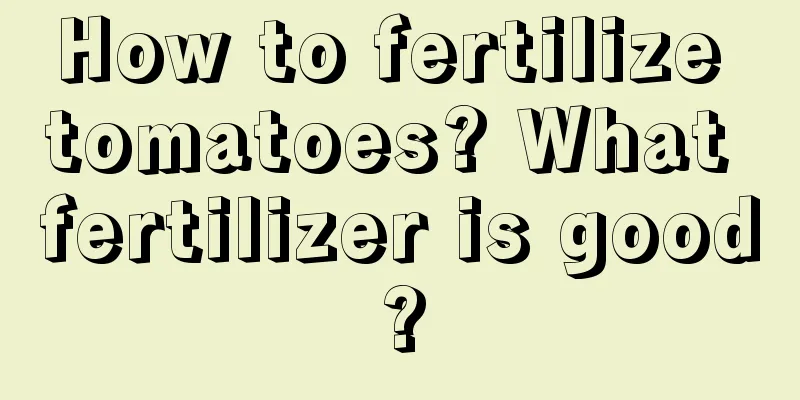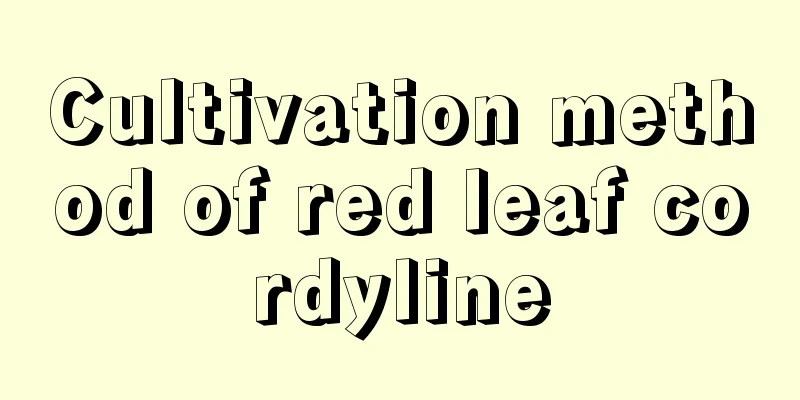How to fertilize tomatoes? What fertilizer is good?

|
There are many vegetable farmers in my country who grow tomatoes. If you want to make a profit from tomatoes, yield is the key. In the management process, scientific fertilization has a great impact on tomato growth, and the focus is different in different growth stages. Let’s learn how to fertilize tomatoes. What fertilizer is good? 1. Base fertilizer Before planting tomatoes, sufficient base fertilizer should be applied. It is recommended to use compound microbial fertilizer. This type of fertilizer contains organic matter, humic acid, beneficial biological bacteria and chelated trace elements, which can effectively improve the soil and increase soil permeability. 2. Fertilization during the planting period When planting and transplanting tomatoes, use liquid microbial agents mixed with water and use it as rooting water to water the roots of the tomatoes to promote root development, increase the survival rate, and reduce the occurrence of soil-borne diseases. 3. Seedling-promoting fertilizer After the tomatoes have taken root, use fully soluble water-soluble fertilizer to dilute with water for irrigation, flushing or drip irrigation. Apply 2-3 times in a row with an interval of 5-7 days to promote the growth of seedlings. 4. Fruit-enhancing fertilizer When tomatoes enter the fruit-setting period, use high-potassium water-soluble fertilizer for flushing or drip irrigation. Use it 3-4 times to supplement potassium, calcium and other elements to increase tomato yield and quality. 5. Topdressing in the middle and late stages For late-maturing tomato varieties, the growth and fruiting period is longer, so special attention should be paid to topdressing in the middle and late stages to prevent premature aging of tomatoes and affect yield. 6. Foliar spraying During the entire growth cycle, Chinese herbal nutrient solution is used for foliar spraying, mainly during the initial flowering period, peak flowering period, fruit setting period, fruit expansion period and after fruit harvesting to prevent diseases and inhibit insect pests. 7. Pay attention to the application of organic fertilizer Organic fertilizer should be composted at high temperature to avoid root burn and diseases caused by uncomposted organic fertilizer. 8. Medium and trace elements In tomato production, in addition to paying attention to the macroelements of nitrogen, phosphorus and potassium, we should also pay attention to supplementing trace elements such as boron, molybdenum, calcium and magnesium to prevent the occurrence of deficiency symptoms. To sum up, tomato fertilization should be based on its growth stage and should use different types of fertilizers, including organic fertilizers, microbial agents, water-soluble fertilizers and foliar fertilizers. At the same time, attention should be paid to the time and method of fertilization, as well as the supplementation of medium and trace elements.
|
<<: How to make Monstera leaves crack and how to deal with dead leaves
>>: How to make Zephyranthes bloom more and what to do after flowering
Recommend
How to fertilize gladiolus
Three stages of fertilizing gladiolus Phase 1: Ap...
How to quickly root the green radish cuttings? Can hydroponics with sugar help it grow roots quickly?
1. Rapid rooting method of cuttings 1. Choose the...
Where is the mango tree suitable for growing? What are the growing environments and conditions?
Where do mango trees grow? Mango trees are suitab...
How to plant the newly bought jade plant
1. Check and prune Before potting the newly bough...
How to care for Purple Moon
Purple Moon Growth Conditions Purple Moonflower l...
Jabuticaba propagation and pruning
Habits Jabuticaba cannot grow without water. Trop...
How to care for newly bought daffodils
1. Check the plants After buying new daffodils, b...
When is the right time to harvest garlic?
Garlic Harvest Time Garlic usually matures and go...
Can milk kill insects?
1. Can kill insects Spraying the plants with milk...
How to plant gladiolus? Planting time and method
Gladiolus planting time The suitable time to plan...
When is the best time to prune camphor trees?
Camphor tree pruning Pruning camphor trees can sh...
How much is the profit per acre of five-fingered peach?
Five-fingered ginseng is a traditional Chinese me...
Planting methods and precautions for holy lotus potted plants
When cultivating the holy lotus, all the conditio...
What is the difference between Asparagus and Ophiopogon japonicus
1. Different families Asparagus: It is a plant be...
What to do if the green radish vine is too long
1. Pruning Method: Pruning is usually done in spr...









